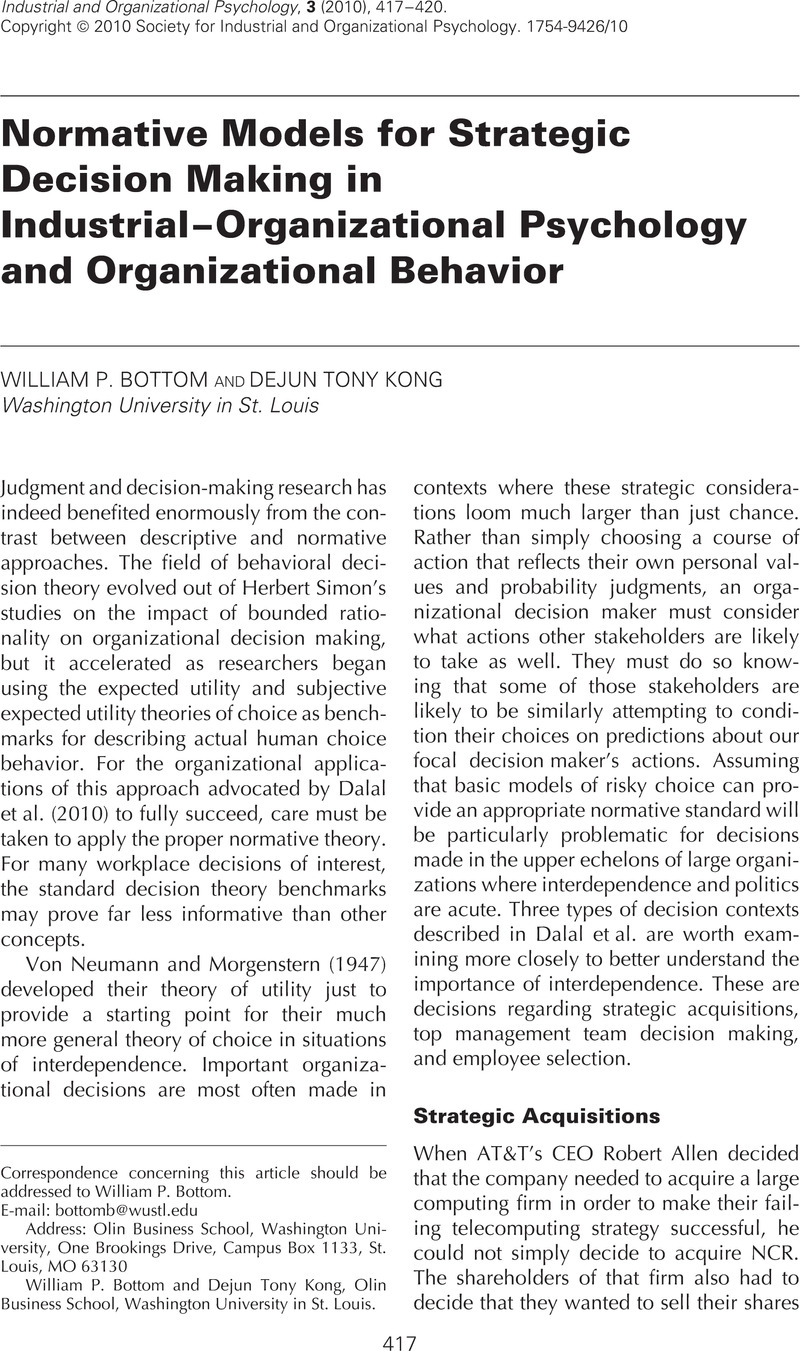Crossref Citations
This article has been cited by the following publications. This list is generated based on data provided by Crossref.
Bonaccio, Silvia
Dalal, Reeshad S.
Highhouse, Scott
Ilgen, Daniel R.
Mohammed, Susan
and
Slaughter, Jerel E.
2010.
Taking Workplace Decisions Seriously: This Conversation Has Been Fruitful!.
Industrial and Organizational Psychology,
Vol. 3,
Issue. 4,
p.
455.





